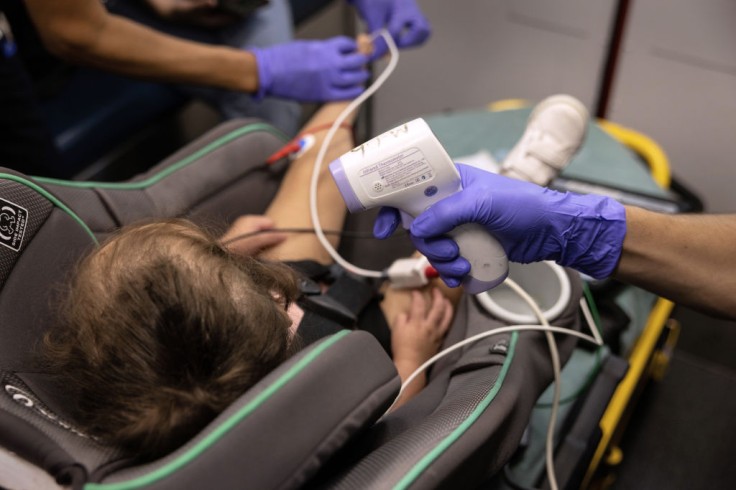
Shigella bacteria and infection cases are on the rise.
The Centers for Disease Control and Prevention (CDC) issued a warning to parents and travelers about the increasing number of Shigella cases.
These cases are extensively drug-resistant and pose a serious public health threat.
Children under five are most susceptible to shigellosis; however, people of all ages can contract the disease, including adults.
Rising Shigella cases in children
CBS reported in February 2022 that the United Kingdom had 84 cases of extensively drug-resistant Shigella, a high number for the region.
Additionally, hundreds of cases have been reported among travelers returning to the U.S. and countries across Europe from Cabo Verde resorts, including some cases with multidrug resistance.
These findings have raised concerns about the spread of antibiotic-resistant "superbugs" like Shigella. Dr. Payal Patel, an infectious disease physician, noted an increase in infections resistant to all first-line antibiotics.
This is a worrying trend, making treating the infection much more difficult.
Shigella is a type of bacteria that can cause an infection known as shigellosis, which affects the digestive system.
Shigella bacteria are typically spread through contaminated food or water or by contact with someone infected.
The symptoms of shigellosis include diarrhea, fever, and stomach cramps, and the infection can range from mild to severe. Shigellosis can sometimes lead to complications such as dehydration or even death, especially in young children, the elderly, or people with weakened immune systems.
Treatment for shigellosis usually involves antibiotics, but antibiotic-resistant strains of Shigella have become increasingly common in recent years.
According to Motherly, Shigellosis is a common infection in children, often characterized by watery diarrhea. Along with diarrhea, there are other symptoms that can indicate a Shigella infection in kids.
These may include diarrhea that contains blood or mucus, belly cramps, fever, loss of appetite, nausea and vomiting, painful bowel movements, and tenesmus, which is the feeling of needing to poop even though the bowels are empty.
Read Also: Child Transgender Cases: Whistleblower Reveals Alarming Increase in Cases at St Louis Hospital
Protecting young children from Shigella infections
Young children are especially vulnerable to Shigella infections because their immune systems are underdeveloped. They may be more likely to put their hands or objects in their mouths, increasing their exposure to bacteria.
According to the CDC, practicing good hygiene is crucial to avoid contracting Shigella infections. This includes washing your hands frequently with soap and water, especially before eating or preparing food, after using the restroom, or after changing a baby.
It is also important to ensure that food and water are safe to consume by washing fruits and vegetables thoroughly, cooking food to the appropriate temperature, and avoiding drinking untreated water.
To protect young children, it may be helpful to supervise them during handwashing and to teach them good hygiene habits from a young age.
It is also important to keep toys, surfaces, and objects clean and disinfected, especially if there is a known infection in the household or community.
Furthermore, it is essential to note that the severity of symptoms can vary from person to person, and some children may experience mild symptoms while others may experience more severe symptoms.
If parents suspect their child may have shigellosis, it is crucial to seek medical attention immediately to ensure proper treatment and care.